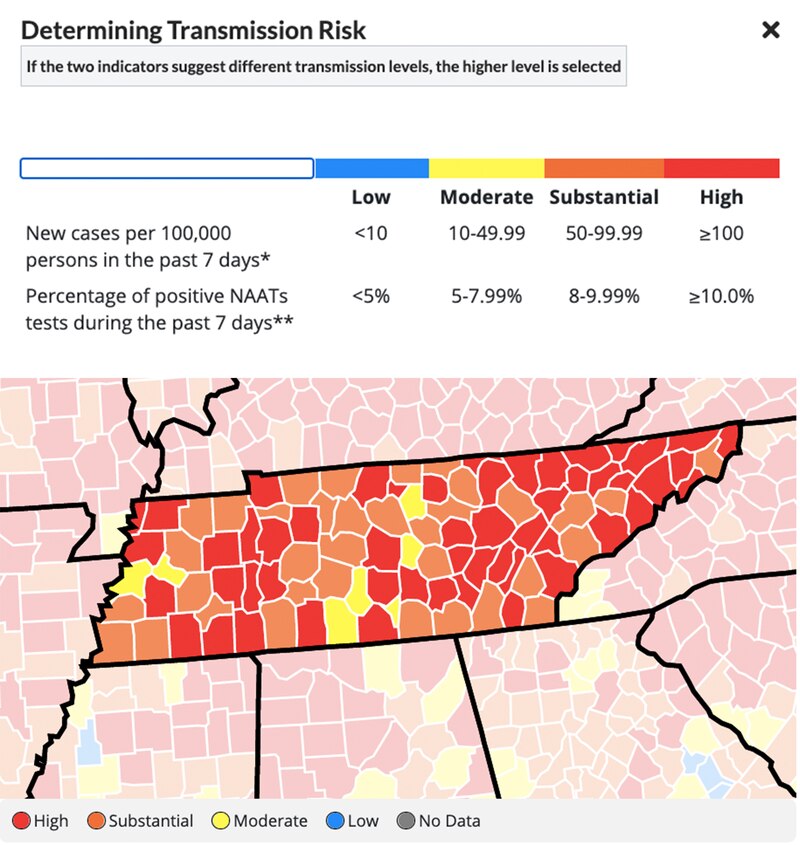Shelby County has filed an emergency motion a day before Gov. Bill Lee is expected to sign sweeping legislation essentially banning mask mandates in Tennessee public schools. The motion asks if a temporary injunction allowing mask requirements in schools will still stand after Lee signs the recently passed anti-mask legislation into law.
In Thursday’s court filings, the county argued that the legislation attempts “to strip the county health officer” from her “delegated authority” and gives the state commissioner of health “the sole authority to determine quarantine guidelines, including any closing or restricting of private businesses and schools.”
The motion states, “Shelby County seeks clarification as to what continuing obligations it has?”
The county would like to continue to oversee Covid-19 mitigation efforts, and Thursday’s emergency motion argues that if Lee signs the bill as promised on Friday, the county’s authority will be greatly reduced unless there is legal intervention.
The soon-to-be law has produced divided reactions from Tennessee teachers and families. While some relish the thought of being in classrooms without face coverings, others worry about safety. And many are frustrated that private schools will be able to issue mask mandates more easily than public schools since the bill does not address private schools.
Thursday’s motion is the latest legal maneuver in a winding court battle ignited after Lee signed an Aug. 16 executive order allowing parents to opt out of school mask requirements for their children.
Following the executive order, Shelby County parents filed a lawsuit against Lee alleging that the opt-out provision violated the Americans with Disabilities Act because unmasked students posed a health risk to their immunocompromised children. Parents across the state filed similar suits. Shelby County also filed a separate lawsuit saying Lee’s actions interfered with its ability to keep children safe because the order threatened the county’s health ordinance. The county and parents sought a temporary injunction and U.S. District Judge Sheryl Lipman of Tennessee’s Western District granted it in September.
The injunction blocks Lee’s opt-out order while the trials proceed. The county has used that injunction to continue its school mask requirement, but Thursday’s emergency motions claims that the pending law brings a lack of clarity over which action takes precedence.
The law that Lee has promised to sign essentially bans masks in Tennessee public schools and passed along partisan lines — with Republicans supporting and Democrats opposing — during a late October special session. The bill also places restrictions on when other government institutions such as courts and libraries can implement mask requirements.
Under the likely new law, Tennessee school boards would only be allowed to enact mask mandates for two weeks at a time, on a school-by-school basis if specific conditions are met, including when the governor has declared a COVID-specific state of emergency, a principal makes a request for universal masking, and severe conditions are present.

The legislation defines “severe conditions” as a county average of at least 1,000 new infections for every 100,000 residents. The Centers for Disease Control and Prevention, however, defines “substantial” community spread as 50-99 new cases per 100,000 residents and “high” as more than 99. By the CDC’s measurements, community transmission in most of Tennessee remains substantial or high.
Shelby County Schools did not immediately reply to Chalkbeat’s questions on Thursday about how it will respond to the law. School spokesperson Jerica Phillips previously stated that the district would update parents and employees after the governor signs the law. Sean Braisted, spokesperson for Metro Nashville Public Schools, said that the district’s legal department is reviewing the bill and any federal laws that may supersede state law.








